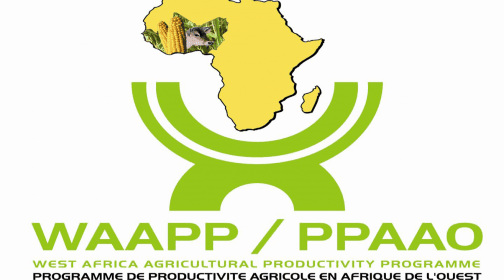Agriculture
When opportunism trumps patriotism -By Sesugh Akume


The West African Agricultural Productivity Programme (WAAPP) is an initiative of the World Bank partnering with West African states to improve and boost agriculture in achieving food sufficiency in achieving the Millennium Development Goal (now Sustainable Development Goal) of ending hunger. This programme has been immensely successful. If Akinwunmi Adesina, the erstwhile minister of agriculture achieved any sustainable thing worthy of note, it must have been through the WAAPP.
In Nigeria, the first phase ran from 2011-2016 and is renewable. Towards the expiration of this first phase, a search was conducted to get a suitable head of the project for the next phase as the former head had retired from the civil service and the present one serving in an acting position. The World Bank and the other stakeholders therefore went ahead to clearly set out the criteria for their preferred candidate, and after a rigorous selection process, an expert with vast exposure and experience working with the World Bank and other such development partners on similar projects over the years was successful. He was served his appointment letter duly by the minister of agriculture.
As with virtually all things Nigerian go, the very same minister of agriculture, Audu Ogbeh who had earlier in the appointment letter warmly congratulated the new WAAPP Nigeria national programme coordinator wrote to withdraw the appointment till further notice! A thoroughly embarrassed World Bank as a consequence wrote to the Nigerian government regretting the ‘political interference’ in the already successfully completed selection process. They regretted to that they will no longer be participating in the second phase of the programme which ought to have commenced today. In simple English, the WAAPP is over in Nigeria, as there shall be no Phase 2, as it rounded up effective yesterday June 30.
The fellow who was acting programme coordinator happens to be of the same ethnic as Audu Ogbeh, the agric minister. He too applied for the job as he was hoping to be confirmed the substantive head but wasn’t retained, as he wasn’t as suitably qualified as the successful candidate. But certainly, being a World Bank funded project, the focus here is as usual the financial emoluments and other such benefits that come with the office, as is the predominant philosophy that drives public service in Nigeria: self interest, self preservation, consumption, and entitlement. The fellow seeing such a ‘juicy’ position couldn’t let it pass him by, he had to act, and fast too, deploying whatever advantage he had; in this case nepotism, ethnicity and religion.
The grapevine has it that all sorts of emissaries from the king of their ethnic to whomever was available, trooped in to make a case for him with the minister after he lost out in a fair and transparent selection process. At the end of the day, ethnicity, nepotism, prebendalism, mediocrity won. Nigeria, the Nigerian farmer, the Nigerian agri-businessperson, the entire Nigerian agri-business value chain, and the Nigerian people lost. The goal defeated.
This singular tragedy doesn’t necessarily depict one politician’s preference for his own ethnic group, it exposes that recurring albatross the Nigerian nation state faces: the conspiracy of a colluding, conniving, selfish, self-centred, opportunistic if not parasitic political elite.
When marauding cattle herders attacked and killed hundreds and destroyed entire villages in Agatu, this very same Audu Ogbeh saw nothing wrong with a part of his own ethnic nation being annihilated. His first response and solution was that his agric ministry would be importing verdant haute cuisine grass to feed cattle properly so that herders may no longer have cause to roam, and to attack communities. Not one word about those who lost their lives, loved ones, homes and livelihoods. Clearly in his dictionary, cattle take precedence over human lives, and the dead are already dead so there’s no point talking of getting justice for them, succour for the living, and bringing the offenders to book.
Were he not a minister of the federal government, and assuming that he were in the opposition what we are likely to have gotten, going by how these politicians play is to mobilise ethnicity, region, and religion to insist that there is a grand plan to Islamise the entire region and take over the land. He’d have harped on and on how his people are being ‘marginalised’. Had they a cabinet member who’d speak for them this won’t be happening.
‘Tuta absoluta’ the tomato blight ravished the land causing the price of tomatoes to escalate and therefore unaffordable thus increasing malnutrition across Nigeria, increasing the hardship that is already choking. This agric minister had nothing to say about this, not even to ‘his own people’ at home at the heat of it when everyone was yearning to hear what the Nigerian government was doing about it aside blaming the outgone administration. At the requiem mass for his departed mother at St Francis’ Cathedral Otukpo which provided an opportunity explain things: what caused the problem, how it was being solved with assurances of how it won’t happen again, mechanisms to ensure this, etc. When everybody’s ears were itching to hear him out, the honourable minister spent most of his time talking about how the government is mobilising Nigerians to donate shoes, clothes, bags, and other items towards the welfare of IDPs in the northeast. That was six weeks ago. As at today, IDPs are dying of starvation. Their makeshift camps are flooding. Food donated to them is being stolen and repackaged by the Borno State Emergency Management Agency (SEMA) and sold in the open market. Those who make this public are hounded by the police and other agents of state coercion. Opportunists, always using vulnerable peoples’ grief to score points. Never mind that some of the people he was addressing were themselves IDPs, their homes being ravages by the herders!
(NB: The meeting to address the ravage by the tomato blight was convened by the minister of industry, trade, and investment only two weeks ago, never by the agric ministry).
The opportunistic political class’ agenda is clearly defined; including the hordes of overdraft billionaires who borrow from without following the right procedure, and never pay back. Hold brief for them at your peril.
It is, and has always been the contest for the soul of Nigeria. ‘When wicked men conspire, good men must combine.’


















